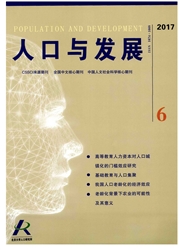

 中文摘要:
中文摘要:
基于分层抽样的江苏省新一轮"扶贫到户"政策试点地区新沂市和灌南县的288户农户父辈与子辈两代人的贫困情况变化,重点考察了农村家庭贫困的代际传导路径。贫困的父辈无法给予子辈直接资金支持,这种经济贫困的直接影响是传导路径之一;另外,子辈经济贫困受到子辈人力资本和家庭社会资本的影响,贫困的父辈往往对子辈人力资本和家庭社会资本投资不足,父辈的经济贫困藉由这两条途径也间接传递给子辈。因此,对代际贫困传递的干预应同时考虑直接传递路径和间接传递两种路径。
 英文摘要:
英文摘要:
Based on stratified sampling,this study explores poverty conditions of elder generation and their children from 288 countryside families in Xinyi County and Guannan County,where a new round of Policy of Poverty Alleviation has been carried out,and analyzes thepathway of Intergenerational Poverty Transition of Countryside Families. The study shows direct influence is one of the pathways for poor elder generation’s disability of financial support. Moreover,economic status of children generation is partly determined by social capital and human capital,which are insufficiently invested in their childhood and become indirect pathways for poverty transition. Therefore,it is suggested that both direct and indirect pathways should be taken into consideration when tackling poverty transition.
 同期刊论文项目
同期刊论文项目
 同项目期刊论文
同项目期刊论文
 期刊信息
期刊信息
